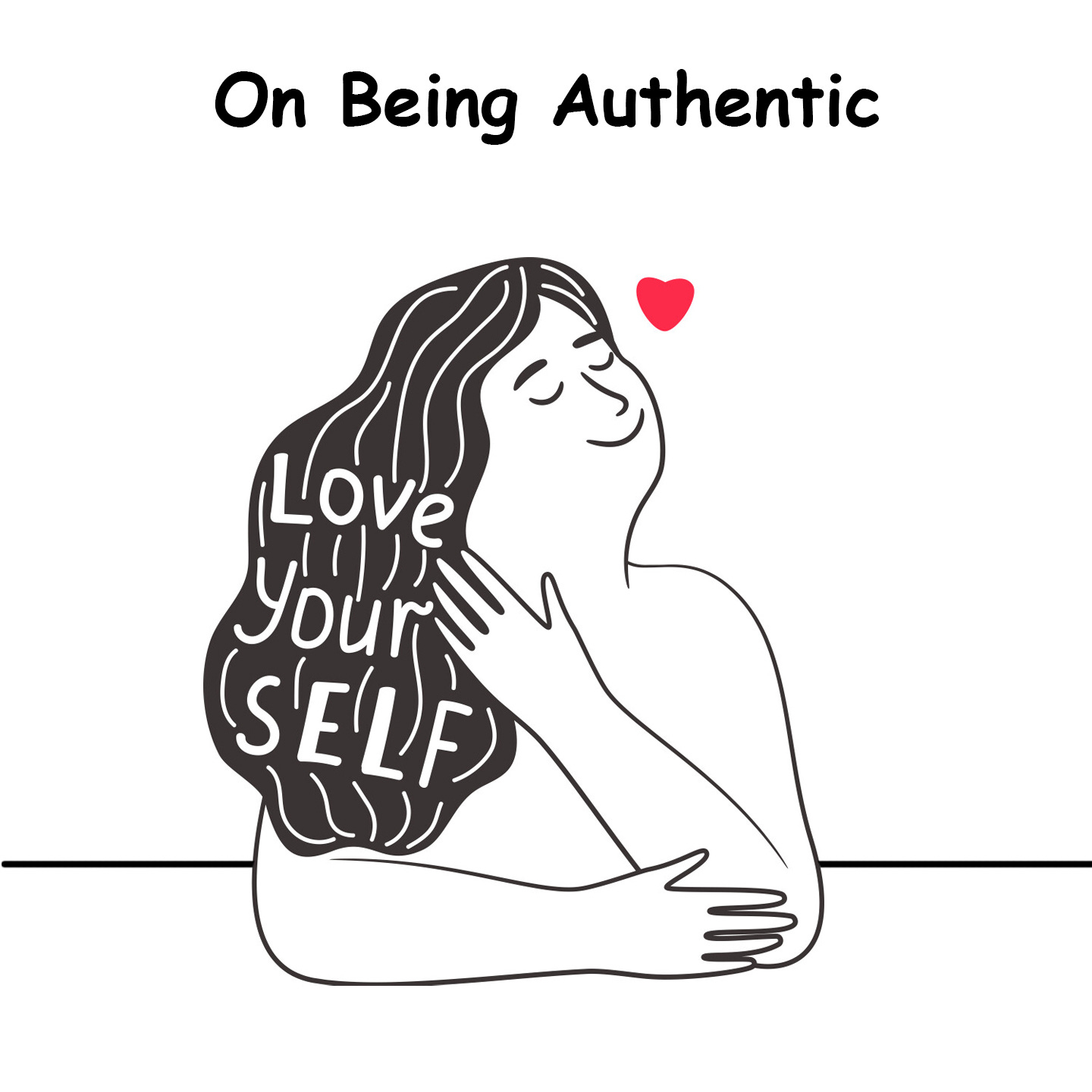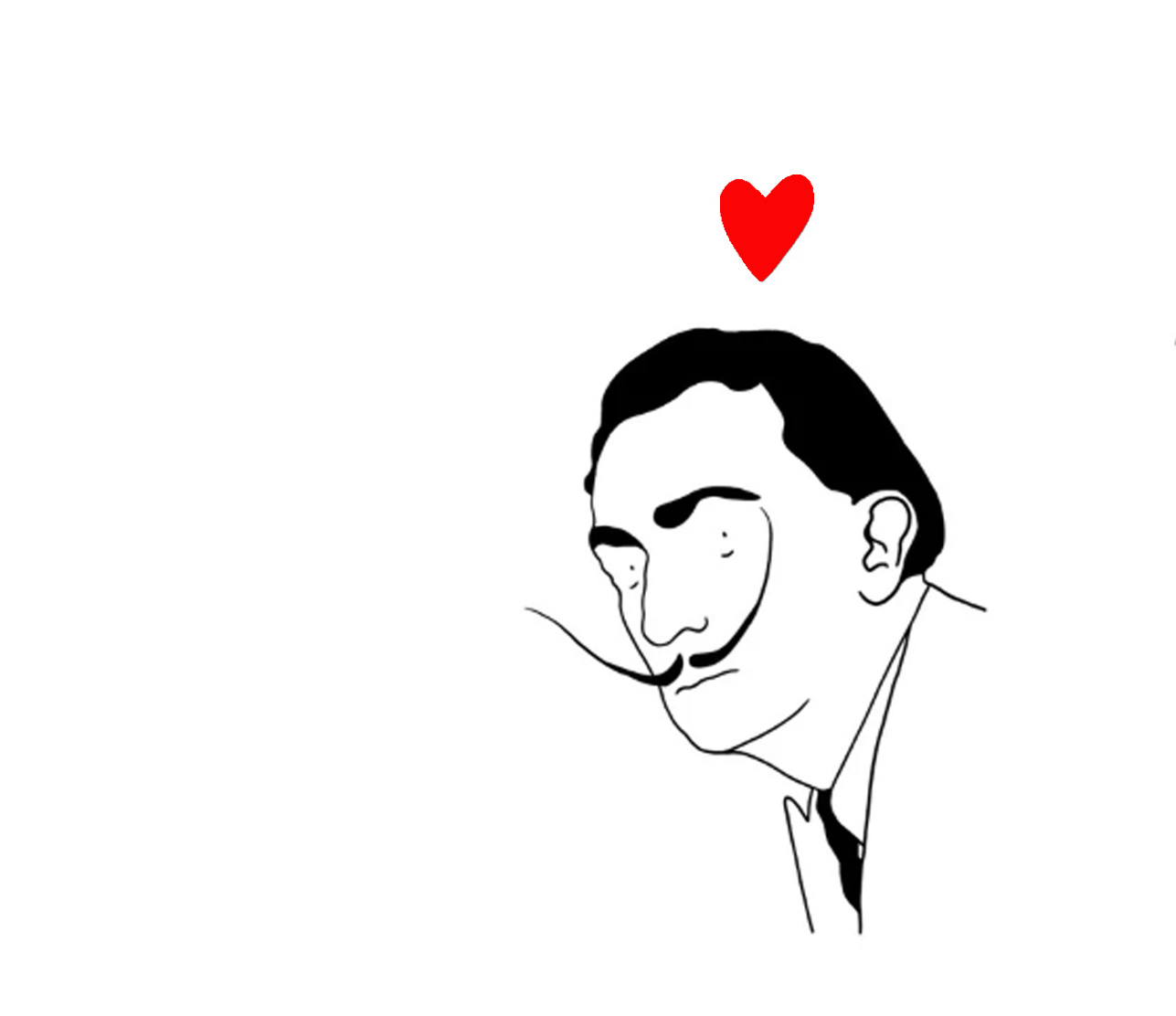Personal Brand & Being Authentic
How Embracing Your True Self Can Transform Your Work, Relationships, and Life
Hi, I'm Manuel Saez, 2x Founder, Award-Winning Designer, and Emotional Intelligence Coach 🌻 Here I Share the advice I wish I had while building my businesses ➜ I love fixing old motorcycles 🛵🏍️
Reading time: 9 min.
Contents:
Not Being Yourself Can Feel Exhausting
How to Discover Who You Truly Are
Society’s Rules Vs. Authenticity
Being Authentic Can Be the Hardest Thing
Why Authenticity Matters in Entrepreneurship and Design
Authenticity & Personal Branding
Your Authentic Journey
Not Being Yourself can Feel Exhausting…
Ever felt tired of playing a role, trying to be someone you’re not?
Not long ago, I found myself there, juggling multiple roles as a founder, designer, and coach.
I realized that the expectations placed on me—both by others and myself—often led me to act in ways that didn’t feel entirely true to who I was.
It was exhausting.
I wasn’t just tired; I was disconnected.
The turning point came during a coaching session. I asked my client a simple question:
What would you do if you weren’t worried about what others think?
As the words left my mouth, I had a profound realization: I hadn’t asked myself that question in years.
That moment opened my eyes to something fundamental: most of us spend so much time trying to meet expectations, play roles, or fit into molds that don’t belong to us.
And in doing so, we lose sight of who we truly are.
When we aren’t true to ourselves, we deprive the world—and ourselves—of something extraordinary: the unique and beautiful person we are meant to be.
Instead, we end up living with a nagging sense of lacking, endlessly searching for fulfillment in places that will never truly satisfy us.
Authenticity isn’t just a buzzword; it’s a life-changing practice.
It’s about living in alignment with your values, your strengths, and your true self.
In this essay, we’ll dive into why authenticity feels so difficult to achieve, how you can rediscover who you really are, and how living authentically can transform your work and your life.
Because when you find the courage to live authentically, you unlock the freedom to make meaningful contributions—not just to the world, but to yourself.
How to Discover Who You Truly Are
Getting to know yourself deeply isn’t easy—it takes time and effort.
Sometimes it feels like an elusive target because we’re always evolving. But that’s the beauty of it. The search, the discovery, and the growth make it all worth it.
For me, the approach that worked was self-inquiry: an ongoing process of asking, defining, and feeling. It’s about diving beneath the surface and exploring what truly makes you “You.”
Here are three questions I ask myself regularly:
What are my values?
What lights me up and feels effortless?
What does the best version of myself think, feel, and do?
I invite you to take five minutes and write your answers down. Then, come back tomorrow and read them. Notice how you feel when you reflect on your answers.
Do they feel right? Are there changes you’d make? Adjust them until they feel like an honest reflection of who you are.
When I first asked myself these questions, I resisted. The answers didn’t come easily. But over time, patterns began to emerge. I realized that at my core, I find joy in creating and helping others grow—whether through design or coaching.
One important thing to remember: self-inquiry isn’t a one-time exercise. It’s a lifelong process, and it’s okay for your answers to evolve as you do.
Another key insight is that this isn’t just an intellectual exercise. While your rational mind will play a role, your emotional side is just as important. Listen to your gut. Pay attention to what you feel is true, and then use your rational mind to test those instincts.
When you embrace this balance, the process becomes less daunting and more enjoyable. You’re not just discovering who you are—you’re actively shaping the person you’re becoming.
Society’s Rules vs. Authenticity
The other day, my teenage son let out a loud burp and, when I pointed out that it might come across as rude, he replied confidently, “But that’s my authentic self!”
His response made me pause. It was playful, of course, but it also raised an important question:
Where’s the line between being authentically you and respecting the rules of the world around you?
Here’s the thing—authenticity doesn’t mean disregarding social norms or doing whatever you want without considering others. Living authentically isn’t about rejecting societal expectations outright.
It’s about finding a balance between staying true to who you are and understanding how your actions impact the people and environments you interact with.
Authenticity doesn’t happen in isolation. We live in a world filled with relationships, communities, and shared spaces.
Respecting others while expressing your authentic self isn’t a contradiction—it’s part of being emotionally intelligent and socially aware.
So, how do you navigate this balance? Here’s a framework:
Check Your Intentions
Are you expressing your authentic self to connect and communicate, or are you using “authenticity” as a way to justify actions that might harm or alienate others?
My son’s burp? Maybe authentic for him, but when it’s part of a shared moment at the dinner table, it might unintentionally create discomfort for others.
Assess the Impact
Ask yourself: How does this action affect the people around me? Does it align with my values? Authenticity is powerful when it builds trust and respect.
For example, being honest in a conversation is authentic. But being brutally honest without care for someone’s feelings? That’s self-expression without consideration, not authenticity.
Align with Context
Different spaces require different approaches. At home, authenticity might look like relaxing your filters and expressing freely. In professional or public spaces, authenticity might mean adapting your behavior without betraying your core values.
Teaching my son that burping loudly at home might be fine in certain moments, but in a restaurant or formal setting, it sends a different message, is an example of aligning authenticity with context.
Remember Your Core Values
Living authentically doesn’t mean ignoring social rules—it means acting in ways that align with who you are at your core while still respecting the people and situations around you.
The goal isn’t to squash someone’s personality or unique traits. It’s to understand that being yourself doesn’t mean being the same version of yourself in every situation.
Authenticity grows when you learn to adapt without losing what makes you unique.
Being Authentic Can Be the Hardest Thing
Althought being different may be your greatest asset, living authentically isn’t always easy. Insecurities creep in, setbacks shake our confidence, and life pulls us away from who we are. It’s okay to feel self-doubt sometimes—everyone does.
Here are some common challenges to watch for and tips to help navigate them:
➜ Fear of Judgment
We’ve all experienced that moment of hesitation: What will people think? Maybe it was during a presentation, sharing an unpopular opinion, or even a small decision like wearing something bold. The fear of judgment can paralyze us.
Tip: Remind yourself that people’s opinions often reflect their own insecurities, not your worth.
A helpful perspective: Most people are more focused on themselves than on critiquing you. When I started coaching, I worried endlessly about whether my advice would resonate. But over time, I realized that showing up honestly—not perfectly—connects me better with people.
➜ Societal Pressures
Society often rewards conformity. There’s an unspoken rulebook for how we “should” look, act, or think. As a founder, I felt pressure to project confidence at all times—toward my team and in front of investors. But that expectation wasn’t realistic—or sustainable.
Tip: Surround yourself with people who celebrate your authenticity. Their encouragement will help you tune out external noise.
A simple exercise: Write down three people in your life who make you feel seen and accepted. Make an effort to spend more time with them. Their support acts as a buffer against societal pressures and reminds you that being yourself is enough.
➜ Imposter Syndrome
Even the most accomplished people can feel like frauds, wondering if they truly deserve their success. I remember standing in front of investors, feeling like I was on trial. Every doubt ran through my mind: What if they see through me? What if I’m not good enough?
Tip: Remember, no one has it all figured out. Embrace growth over perfection, and lean on your support network.
Reframe the narrative: Instead of seeing doubts as weaknesses, view them as opportunities for growth. The moment I admitted to those investors that I didn’t have all the answers, they didn’t see me as weak—they saw me as honest and transparent. That honesty built trust, which mattered far more than perfection ever could.
Why Authenticity Matters in Entrepreneurship and Design
For designers and entrepreneurs, authenticity isn’t just a personal trait—it’s a competitive advantage. Success often depends on creating something meaningful and building trust with others. Authenticity is the foundation for both.
1. Authenticity Fuels Creativity
Design and entrepreneurship thrive on innovation, and innovation requires taking risks. When you’re authentic, you’re more likely to explore ideas that align with your unique perspective, instead of copying trends or playing it safe.
Example: Think of the best designs or the most inspiring businesses. They don’t follow the crowd—they stand out because they reflect the creator’s distinct vision and values. Staying authentic means embracing your quirks, passions, and unique way of seeing the world. That’s where originality comes from.
2. Authenticity Builds Trust
Whether you’re leading a team, pitching to investors, or working with clients, trust is essential. People trust those who are genuine. When you’re authentic, others can sense it.
A personal story: I once led a project where the timeline was tighter than expected. The easiest thing would’ve been to push my team harder and avoid admitting my own doubts. But I chose to be upfront about the challenges we faced. That vulnerability invited collaboration. The team rallied together, contributing ideas and solutions I wouldn’t have found on my own.
The lesson? Authenticly admitting your doubts isn’t a weakness—it’s a strength that brings out the best in those around you.
3. Authenticity Creates Alignment
For entrepreneurs, your business will only succeed if it aligns with who you are and what you value. If you’re trying to build something that doesn’t resonate with your true self, it will feel like a constant uphill battle.
How to apply this: Take a moment to reflect on your work. Does it align with your core values and passions? Authenticity isn’t just about being honest with others—it’s also about being honest with yourself.
4. Authenticity Enhances Leadership
As a leader, authenticity makes you approachable and relatable. Your team is more likely to respect and follow someone they feel is genuine and human, rather than someone trying to project an image of perfection.
Practical tip: Incorporate authenticity into your leadership by admitting when you don’t have all the answers. It’s not about being perfect—it’s about being real. Transparency fosters collaboration and trust, creating stronger teams and better results.
Authenticity isn’t just a nice-to-have quality for designers and entrepreneurs—it’s essential. It fuels creativity, builds trust, and strengthens leadership, all while keeping you aligned with your values.
The more authentic you are, the more impactful your work will be—not just for you, but for the people you lead, the clients you serve, and the world you want to change.
Authenticity & Personal Branding
In today’s world, the idea of “personal branding” gets thrown around a lot.
I’ve wrestled with it myself, trying to present a polished version of myself that fits the expectations of investors, customers, or collaborators.
But here’s what I’ve learned: a personal brand built without authenticity is exhausting to maintain.
On the other hand, authenticity flows naturally. It’s not about creating an image; it’s about understanding who you truly are and letting that shine through.
Authenticity and personal branding aren’t opposites. Your brand can (and should) be an extension of your authentic self. But without knowing who you are and a solid foundation of self-awareness, any “brand” you build will feel hollow.
The difference lies in the approach:
A personal brand often starts with outward perception—crafting how others see you.
Authenticity begins inward, with an honest exploration of your values, strengths, and unique story.
When your actions, words, and decisions align with your authentic self, your “brand” naturally takes shape. It becomes a reflection of who you are, not a performance.
For founders, leaders, and creatives, this distinction matters. A personal brand built on authenticity isn’t just easier to sustain—it’s also far more impactful. It resonates because it’s real, and people are drawn to real.
Your Authentic Journey
Being authentic is a practice. It’s about showing up as yourself, even when it feels uncomfortable or uncertain.
Here are three key takeaways I want you to leave with:
Authenticity is about alignment: Living authentically means aligning your actions, values, and beliefs with who you truly are.
It’s okay to evolve: Self-discovery is an ongoing process, and your answers to “who you are” may change as you grow. Embrace the journey.
Authenticity creates impact: Being true to yourself builds trust, strengthens relationships, and fuels creativity in your work and life.
If this essay resonated with you, I’d love to hear your thoughts. Feel free to reach out with questions, share your insights, or let me know how your self-inquiry exercise goes.
And if you found this valuable, don’t forget to like, comment, or share it with someone who might benefit.
Sending you good vibes 🌻
Manuel Saez






